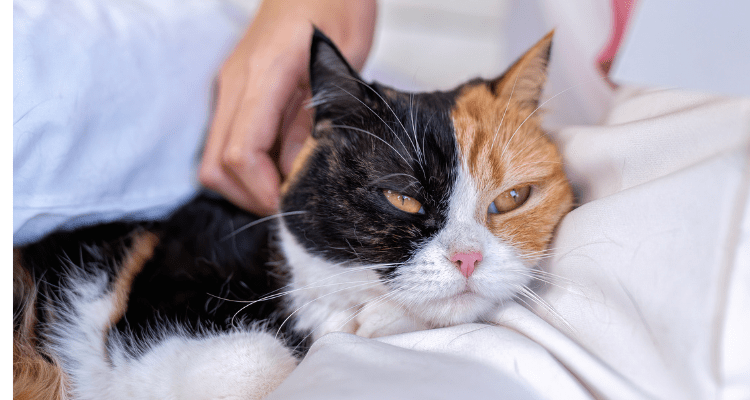- July 11, 2024
7 Home Remedies to Keep Your Cat Healthy and Happy


For many cat parents, taking their cat to the vet is a difficult experience. But if your cat shows signs of illness, you must show them to the vet immediately. Also, cats are good at hiding signs of illnesses and if something doesn’t look good, the situation is more serious than it seems.
That being said, there are a few vital remedies you can try at home while you wait for the appointment of your vet.
Allergies in cats due to elements are rare, but if your feline is experiencing increased sneezing or clear eye discharge regularly, consult your veterinarian about hypoallergenic cat food. These are grain-free foods ideal for even the most sensitive of cats. These foods also have a carefully balanced calorie content that keeps an optimal body weight in the felines. Once your vet approves the diet, you will likely see less allergic reactions in the cats
Apart from bathing your cats, treating the problem of mild dry and flaky skin heavily depends on the type of food you are feeding them. If your cat is experiencing dry skin, you should feed them high-quality cat food that provides them with essential vitamins and minerals. You should also ensure that your cat is up-to-date on faecal testing and deworming as well. Cats also benefit from omega-3 fatty acid supplements, which treat the problem of dry and flaky skin effectively. However, consult your veterinarian before you start providing them a supplement.
Hairball problems in cats are commonly seen around shedding season or when they are stressed out or anxious. If your cat is facing a hairball issue, brush them more frequently to remove all the dead hairs from their undercoat. This is especially important in long-haired cats.
Another excellent way to prevent the problem of hairballs is by feeding them hairball-specific cat food. These cat foods are rich in natural fibres that remove hairballs, ensure good digestion and ans also promote excellent nutrient absorption.
Fleas are external parasites that can trigger an allergic reaction and infection in cats. Fleas can also bite and infect humans as well. One of the best ways to neutralise the problem of fleas is by using a tick and flea shampoo designed for pets. Apart from eliminating the parasites, it also reduces the problem of itching and scratching in the cats. For kittens too young to be bathed with disinfectant shampoo, you can use diluted soap.
Unlike dogs, cats rarely get diarrhea which is caused by a diet change or stress. When your cats get Diarrhea, it is usually a sign of parasites, infection or inflammatory bowel disease. That being said if your cat has soft stool but a normal appetite with no vomiting, consider feeding them a bland diet for a few days. A bland diet is low in fat and fibre and is easily digestible for the cats as well.
It is not always a urinary tract infection if your cats pee outside of their litter box, especially the male cats. Cats are extremely vulnerable to developing urinary symptoms that mimic signs of infection as a result of environmental stress.
Although bloodwork and urinalysis are essential to rule out physical causes, much of the treatment for accidental urination is litterbox management and focusing on the environment of cats.
One of the best ways to treat tangled fur is by using clippers. But if you or your cat is not comfortable with clippers, you may need your groomer’s help to remove your cat’s tangled hair. Once your cat’s large mats are gone, get them used to a grooming routine to prevent painful clumps of fur from forming.
Lastly,
All cat owners should know that there are other health issues, which are highly dangerous to treat through natural remedies. For instance, issues like bad breath, bloating, blood in stool, blood in urine, heat cycle etc. should only be left to the veterinarian to treat. However, the above seven are the most commonly experienced basic problems by cats and you have seen ways on how you can treat them effectively, before seeing your vet.
Tags
What do you think?
Related Articles

New Puppy Checklist: Gear You’ll Need for Your New Dog
Getting a new puppy is really exciting, but before you welcome them home, it’s important to prepare your space for them. Since puppies need a

How Big Do Mini Poodles Get? Vet Reviewed Average Weight & Growth Chart – Dogster
The information is current and up-to-date in accordance with the latest veterinarian research. Learn more » When you buy a Miniature Poodle, you might not

Can Police Dogs Smell Nicotine? Vet Verified Facts & Info – Dogster
The information is current and up-to-date in accordance with the latest veterinarian research. Learn more » While cigarette sales have been declining steadily for decades,

How Old Is 5 in Dog Years? Vet-Approved Guide to Each Size of Dog – Dogster
The information is current and up-to-date in accordance with the latest veterinarian research. Learn more » A common method for calculating a dog’s age is


